Computing & IS
Uganda Launches AI Health Lab at Makerere University
Published
2 years agoon
By
Jane Anyango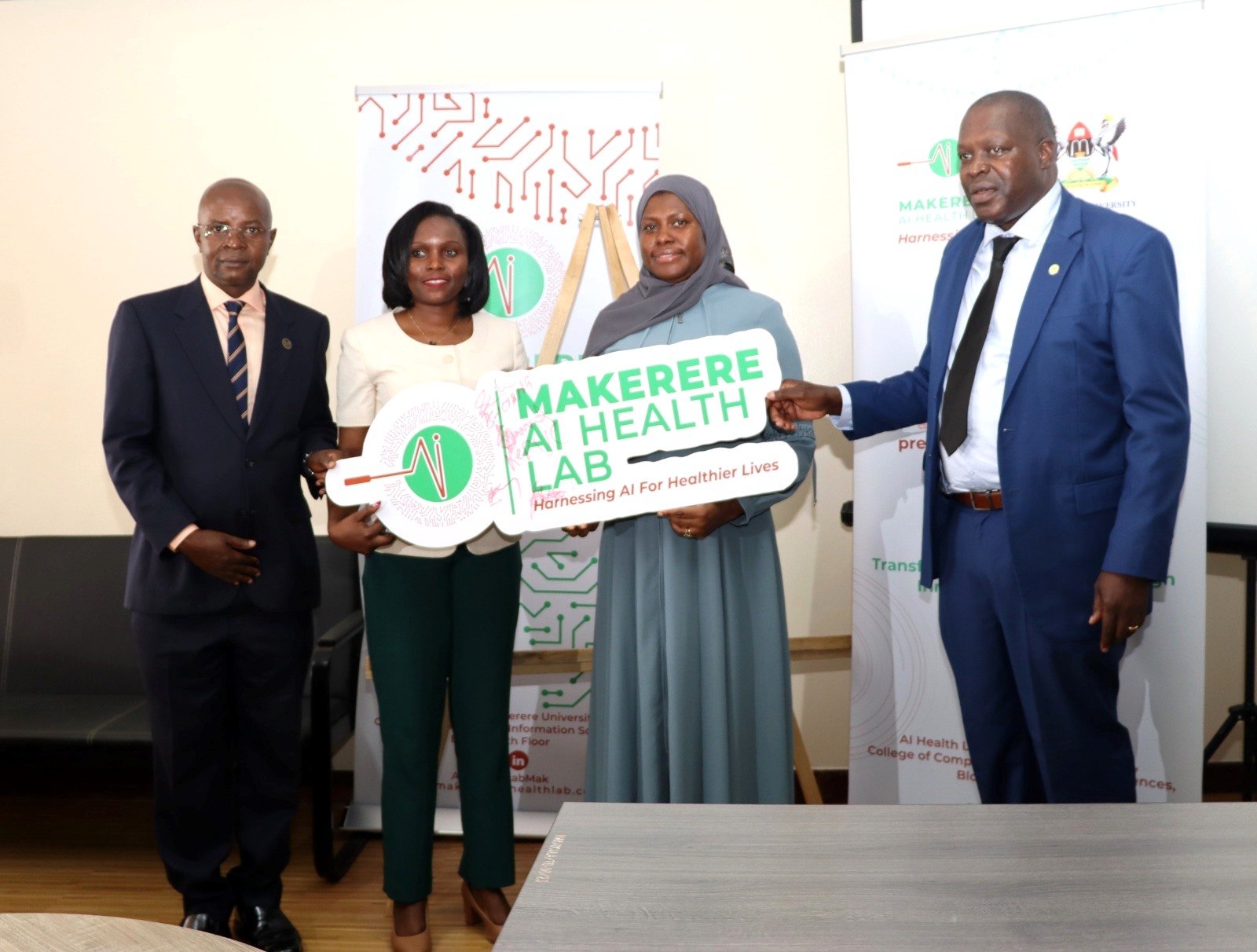
In a significant stride towards enhancing healthcare through technology, the Government of Uganda, in collaboration with Makerere University, has inaugurated the Artificial Intelligence Health Lab. This pioneering initiative aims to revolutionize healthcare delivery using artificial intelligence (AI), marking a crucial advancement for the nation. The lab is situated in Block B, College of Computing and Information Sciences
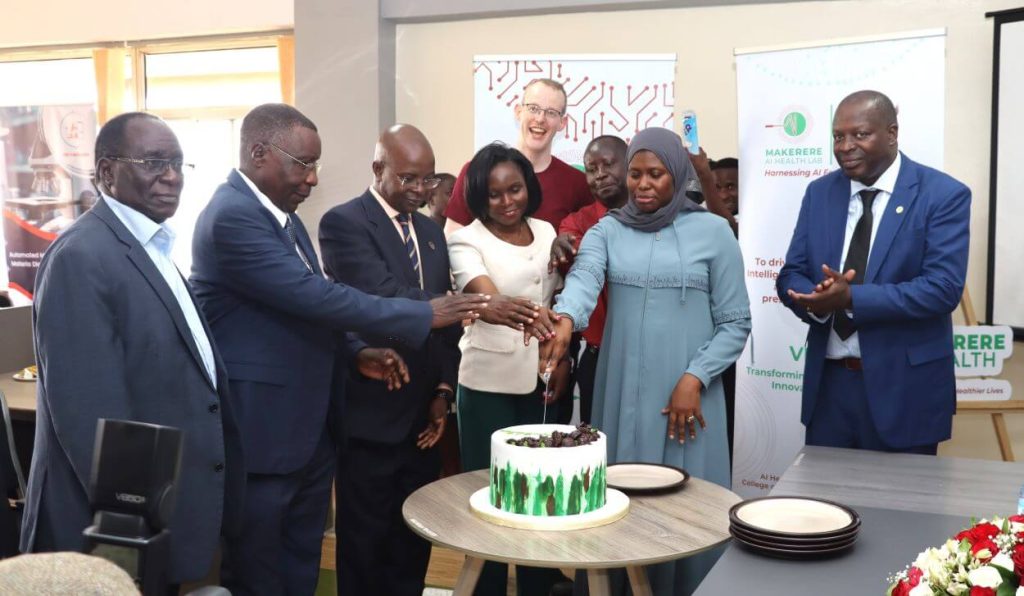
Launching the lab on 30th May 2024, the Permanent Secretary of the Ministry of ICT and National Guidance, Dr. Aminah Zawedde highlighted the importance of this development. “Today marks a momentous occasion as we unveil the Artificial Intelligence Health Lab at Makerere University. This milestone signifies not just a step forward for the university but for our entire nation as we enter an era of innovation and advancement in healthcare through artificial intelligence,” she remarked.
Dr. Zawedde emphasized the transformative power of AI in healthcare, noting its potential to revolutionize diagnostics, treatment plans, and personalized care. She acknowledged the government’s ongoing efforts to integrate AI into healthcare through initiatives like telemedicine platforms, health data analytics, and AI-driven solutions in medical imaging and drug discovery.
However, she stressed the need for ethical and responsible AI deployment, addressing algorithmic biases, patient privacy, and equitable distribution of AI benefits.
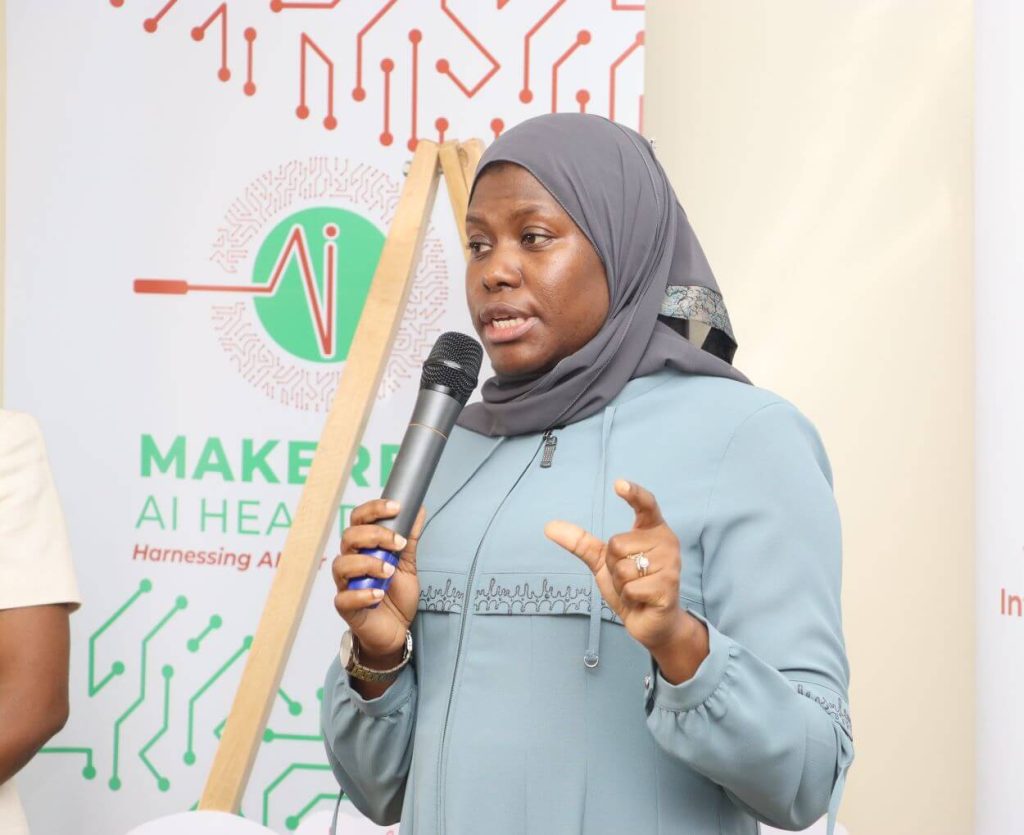
“The Ministry of ICT & National Guidance is committed to supporting AI adoption in healthcare through policy guidance, financial support, capacity building, and infrastructure development,” Dr. Zawedde stated. She called for collaboration among government agencies, academia, healthcare providers, and technology partners to advance AI initiatives responsibly.
Government Emphasizes Homegrown Solutions and Digital Priorities
Dr. Aminah Zawedde, highlighted the importance of prioritizing locally developed solutions to better understand and effectively address national challenges. She outlined five key priorities for Uganda’s digital transition, focusing on infrastructure, accessibility, digital services, cybersecurity, data protection, privacy, digital skilling, and innovation.
Regarding infrastructure and connectivity, the government aims to expand coverage to 70% of the country within the next five years, with ongoing projects supported by the World Bank and China. This initiative targets essential institutions like schools, hospitals, administrative offices, and innovation hubs.
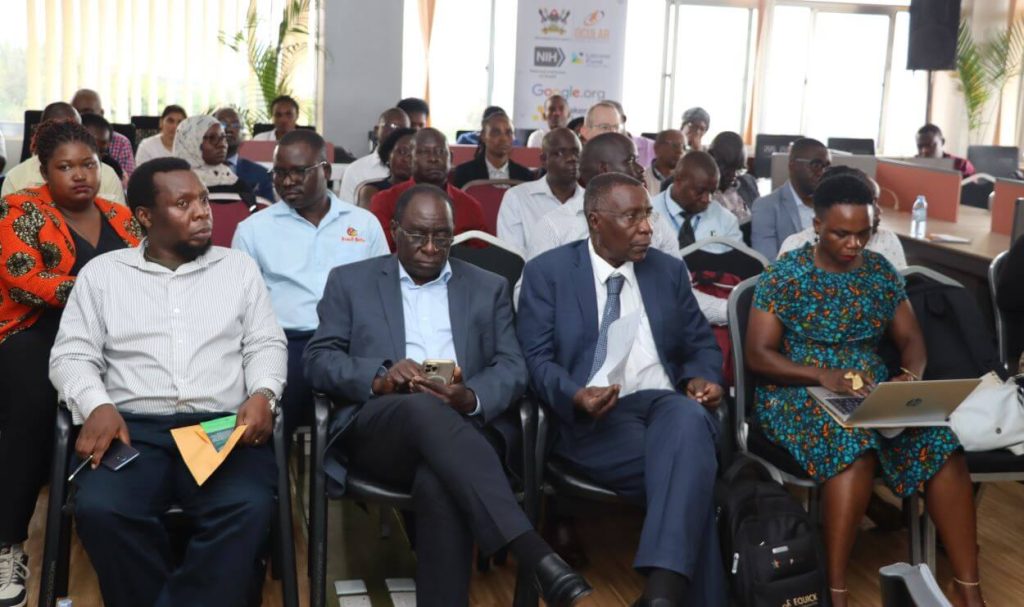
Ensuring accessibility of gadgets, particularly smartphones, is another critical focus area. Recognizing the importance of these devices for accessing digital technologies and apps, efforts are underway to lower costs through measures such as tax waivers and local manufacturing.
Additionally, the government is prioritizing the transition of services online to enhance efficiency, transparency, accountability, and ease of doing business. This move aligns with existing regulations and guidelines for digital transformation, with an emphasis on overcoming implementation challenges related to financial resources, capacity, and awareness creation.
Cybersecurity, data protection, and privacy are also paramount, with plans to develop trusted systems to safeguard digital infrastructure and user information. Furthermore, digital skilling initiatives aim to equip end-users and office management with the necessary skills for effective digital operations.
Finally, the government emphasizes innovation and entrepreneurship, celebrating community-driven solutions that are sustainable, acceptable, and impactful. This focus underscores the commitment to fostering a thriving ecosystem of innovation that addresses the needs of Ugandan society.
Ministry of Health Highlights Urgent Need for AI in Ugandan Healthcare
Dr. Myers Lugemwa from the National Malaria Control Program presented a compelling case for the integration of artificial intelligence (AI) tools in Uganda’s healthcare system. Addressing the current health challenges and the potential of AI, Dr. Lugemwa underscored the transformative impact these technologies could have on disease diagnosis and management.
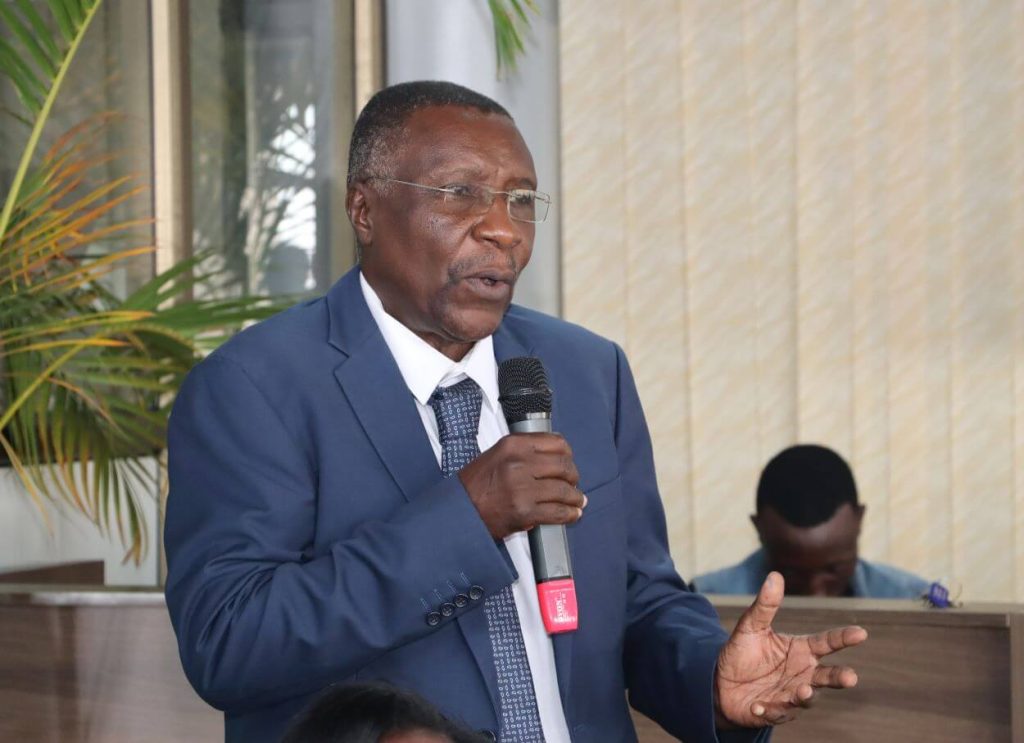
“Globally, low-income countries face a higher burden of communicable diseases such as malaria, tuberculosis, and HIV/AIDS,” Dr. Lugemwa noted. “Despite a significant global decline in these diseases, they remain prevalent in countries like Uganda, where communicable diseases account for over 50% of morbidity and mortality.”
Malaria diagnostics primarily rely on tools like mRDTs, blood slide microscopy, and PCR tests, which are either expensive or not widely available. Similar challenges exist for other diseases such as cancer, tuberculosis, HIV/AIDS, and intestinal parasites, which are diagnosed through methods that may not be accessible at lower-level health centers.
Dr. Lugemwa highlighted the promise of Makerere University’s AI Health-Lab in addressing these diagnostic challenges. “AI tools could revolutionize the accuracy and accessibility of disease diagnosis,” he said. “From improving malaria diagnostics to streamlining cancer screening and diagnosis, AI has the potential to transform healthcare delivery in Uganda.”
Furthermore, Dr. Lugemwa discussed the role of AI in predicting disease patterns affected by climate change, such as malaria, and the importance of electronic health records (EHRs) in improving patient management and healthcare delivery.
“In summary, AI Health-Lab is poised to be a game-changer for Uganda’s healthcare system,” Dr. Lugemwa emphasized. “It aligns with Makerere University’s mission to ‘Build For the Future’ and addresses the Alma-Ata Declaration’s call for local tools that are readily available, accessible, affordable, and user-friendly. The integration of AI in healthcare is not just a technological advancement but a critical necessity for improving health outcomes in Uganda.” Lugema stressed
Makerere University’s Role
Representing Makerere University’s Vice Chancellor, Prof. Edward Bbaale, Director of the Directorate of Graduate Research and Training, expressed pride in the university’s achievements. He underscored Makerere’s proactive steps in promoting AI, including establishing dedicated AI labs, integrating AI courses into the curriculum, and fostering partnerships.
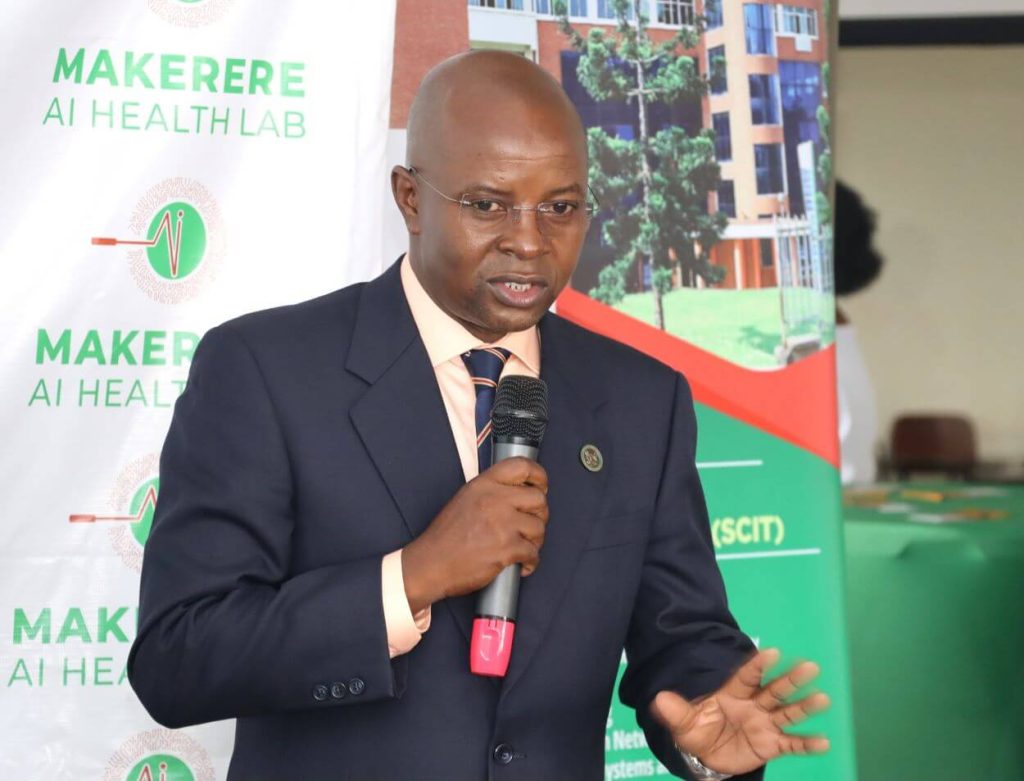
“The establishment of the AI Health Lab is the culmination of a vision that aligns with Makerere University’s mission to be a thought leader in research, innovation, and academic excellence,” Prof. Bbaale stated. He highlighted the lab’s role in fostering interdisciplinary collaboration and innovation, with potential applications ranging from predictive models for disease outbreaks to personalized treatment plans.
Prof. Bbaale also lauded groundbreaking projects spearheaded by Makerere University’s College of Computing and Information Sciences. These include the AirQo project, which deploys low-cost air monitoring systems, and AI-based tools for agricultural disease tracking and medical diagnostics. Notably, the AI Lab, under Dr. Rose Nakasi’s leadership, secured a $1.5 million grant from Google for the Ocular project, automating diagnoses for Malaria, Tuberculosis, and Cervical Cancer.
To the students and researchers, Prof. Bbaale urged them to seize the opportunities presented by the AI Health Lab. “This lab is not just a facility; it is a beacon of possibilities. Engage deeply with the work, collaborate across disciplines, and be bold in your pursuit of solutions that can change the world,” he encouraged.
He also outlined the university’s commitment to moving the entire research value chain from conceptualization to commercialization, ensuring that research translates into products and services that benefit communities.
The launch of the AI Health Lab at Makerere University signifies a significant leap forward in Uganda’s healthcare sector. With continued support and collaboration, this initiative promises to harness the power of AI to improve health outcomes, making a tangible difference in the lives of many. As Dr. Zawedde concluded, “Let us embark on this journey with optimism and determination, knowing that our efforts today will shape the future of healthcare for generations to come.”Bbaale added
Makerere University’s AI Lab Announces Ambitious Plans for Healthcare Innovation
Makerere University’s AI Lab is embarking on an ambitious journey to revolutionize healthcare through advanced artificial intelligence (AI) technologies. Dr. Rose Nakasi, the project leader, unveiled the lab’s comprehensive strategy aimed at addressing critical health challenges and improving patient outcomes through innovative AI solutions and interdisciplinary collaboration.
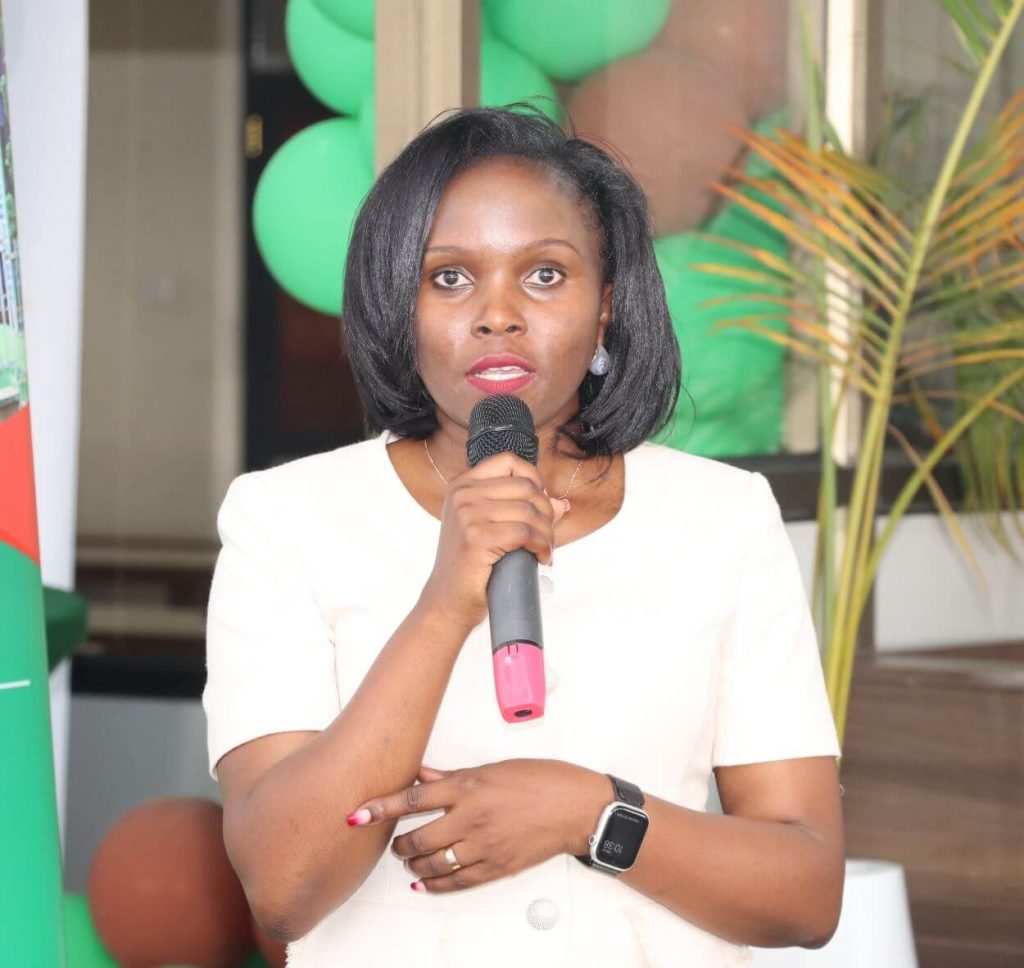
In her presentation, Dr. Nakasi emphasized the lab’s vision of “Transforming Healthcare Through Innovative AI Solutions” and its mission “To drive innovation in artificial intelligence research to effectively address and overcome pressing health challenges.” The lab’s approach focuses on developing practical AI applications, fostering interdisciplinary collaboration, and deepening the understanding of AI’s transformative potential through rigorous research and evaluation.
Among the key projects highlighted by Dr. Nakasi is the Ocular Project, a decision support tool designed to reduce diagnosis time and improve accuracy. Supported by a recent $1.5 million grant from Google, this project aims to automate diagnoses for diseases such as Malaria, Tuberculosis, and Cervical Cancer. Additionally, the DS Malaria project focuses on in-field automated screening trials to enhance malaria diagnosis, while initiatives like curating datasets for malaria diagnostics and digital Pap smear images aim to improve the accuracy and efficiency of disease screening.
Looking ahead, Dr. Nakasi outlined the lab’s vision for continued innovation and growth, including addressing challenges in the health sector and collaborating with regulators to refine and develop new approaches for healthcare needs. She highlighted the lab’s commitment to nurturing the next generation of AI and healthcare experts, with a growing team of PhD and master’s students.
“With more innovation and focus, we aim to address the most pressing healthcare challenges and make a lasting impact on our communities,” Dr. Nakasi stated. Makerere University’s AI Lab, under her leadership, is poised to lead the way in integrating AI into healthcare, reflecting a strong commitment to leveraging technology for the betterment of society.
The opening ceremony was marked by a congratulatory address from the Principal College of Computing and Information Sciences Prof. Tonny Oyana, who lauded Dr. Rose Nakasi and her team for their exemplary research stewardship.
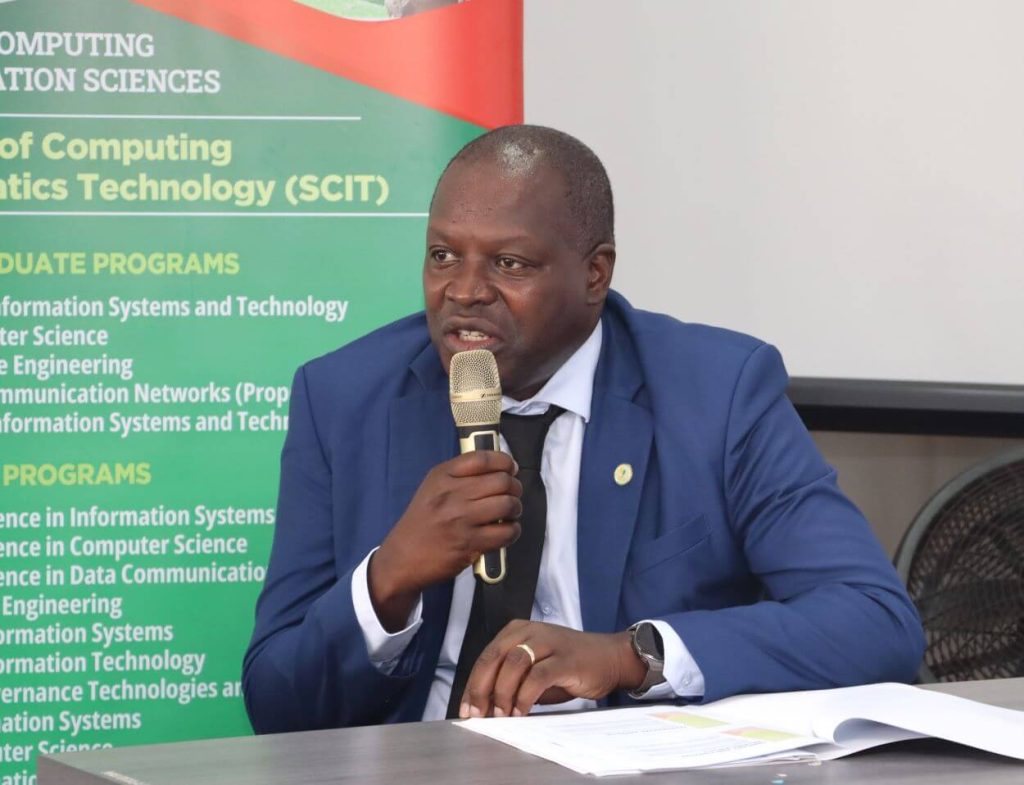
Oyana said the inauguration of this facility marks a significant step forward in the college’s commitment to advancing research and development in artificial intelligence, ensuring that it remains at the forefront of technological innovation
“Congratulations to Dr. Rose Nakasi and her team for their excellent research stewardship,” Prof. Oyana stated. He emphasized the lab’s potential to serve as a dynamic environment for academic growth and experimentation. “Use the new lab to learn, test, grow, and nurture academic talent,” he urged the attendees.
Prof. Oyana also highlighted the lab’s role in promoting interdisciplinary activities. “Use the lab to carry out synergistic activities that promote AI in health,” he said, stressing the importance of integrating artificial intelligence with healthcare advancements.
The facility is expected to become a cornerstone for building sustainable academic and professional relationships. “Use the lab to grow enduring pipelines and long-lasting academic activities and friendships among students and scientists,” Prof. Oyana added.
The new AI research lab, equipped with state-of-the-art technology, aims to provide greater hope and opportunities for students and scientists. “Today, we open a new facility that will provide greater hope and opportunities for our students and scientists,” Prof. Oyana concluded.
Sunbird AI Highlights Potential and Pitfalls of AI for Social Good
Prof. John Quinn from Sunbird AI delivered insightful remarks on the application of artificial intelligence (AI) for social good, emphasizing both its potential benefits and the challenges that need to be addressed.
Prof. Quinn outlined several key areas where AI can have a substantial impact. He noted that AI can compensate for the scarcity of experts by providing critical support in fields such as healthcare and education. AI can also enhance data collection and analysis, aiding in better decision-making and resource allocation. Additionally, AI can be used to create detailed maps, aiding urban planning and noise pollution monitoring.
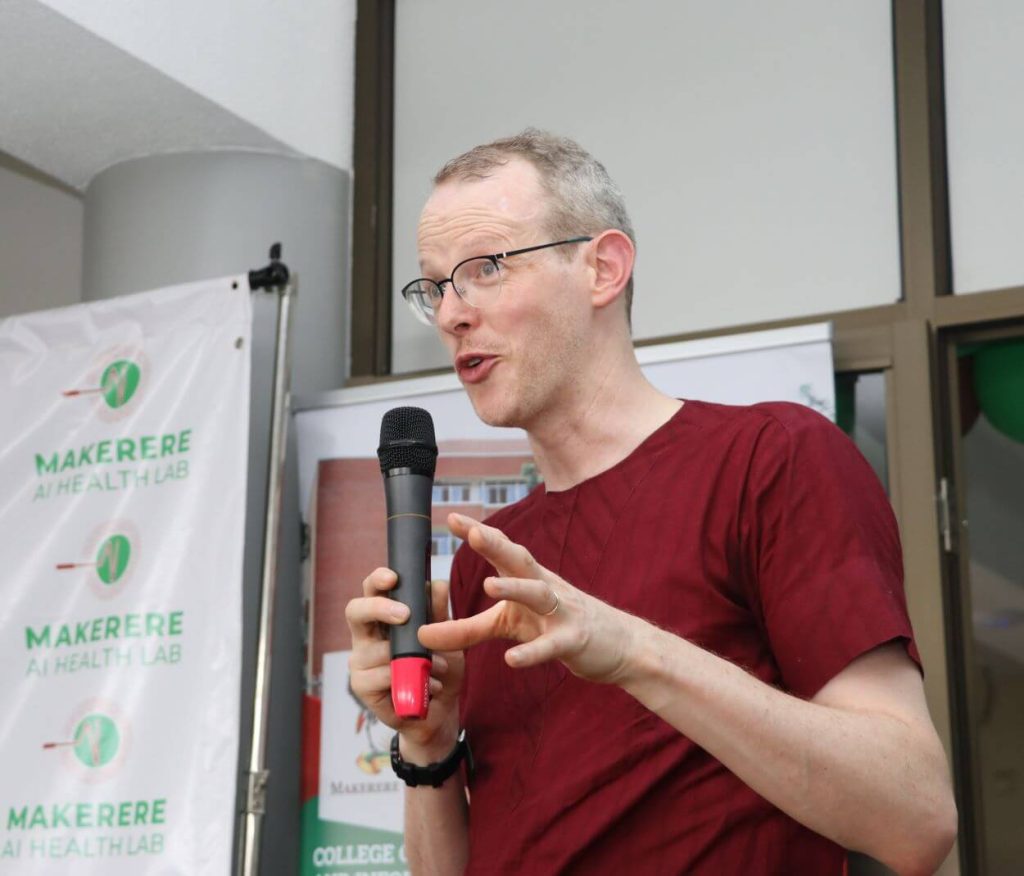
However, Prof. Quinn also highlighted various challenges and unintended consequences associated with AI deployment. He discussed the unexpected difficulties in implementing AI solutions, including technical and human factors.
Technical challenges include limitations of power, network, and devices, which may hinder the deployment of advanced AI technologies in many regions. Furthermore, comprehensive end-to-end solutions might be required, which can be complex and resource-intensive. The lifespan of AI projects can often outlast the typical lifespan of startups or academic projects, posing sustainability challenges. Ensuring long-term functionality and support for AI systems is crucial.
Human factors also play a significant role in the challenges faced by AI deployment. Identifying the right problem from a distance can be challenging, necessitating local insights and collaboration. Successful AI projects often require significant organizational effort beyond the technical work. Building and maintaining trust among various stakeholders is essential for effective collaboration.
Prof. Quinn also addressed the unintended consequences of AI implementation. He pointed out that AI systems can perpetuate or even exacerbate existing biases if not carefully designed and monitored. Without equitable access to AI technologies, existing inequalities can be deepened. Relying on new technologies can create vulnerabilities if the infrastructure is not robust. An excessive focus on prototyping, referred to as “pilotitis,” can consume resources without leading to scalable solutions. The introduction of AI technologies often brings new ethical dilemmas that need to be addressed. Additionally, issues with the quality and representativeness of training data can lead to inaccurate or biased AI models.
Prof. Quinn’s remarks underscored the dual-edged nature of AI in social applications. While AI has the potential to address significant challenges and improve lives, it also brings technical, organizational, and ethical challenges that must be navigated carefully. As AI continues to evolve, stakeholders must work collaboratively to harness its benefits while mitigating its risks.
Testimonials Highlight the Impact of AI in Healthcare Diagnostics
Alfred Andama, reflecting on the journey from 2014 to 2024, shared compelling testimonies from Mulago Hospital, Makerere University College of Health Sciences (MakCHS), and other lower health facilities regarding the integration of artificial intelligence (AI) in healthcare diagnostics.
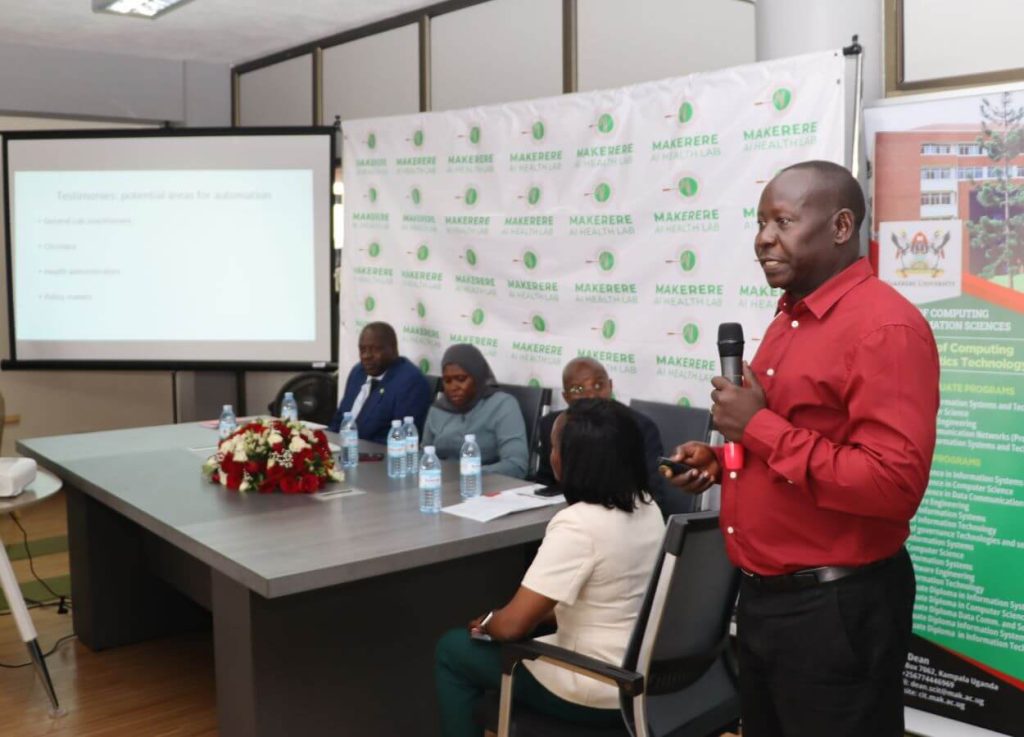
He said Initial Target Diseases primarily centered on malaria, tuberculosis, and intestinal parasites. During data collection at various labs, Andama and his team encountered enthusiastic groups of lab practitioners eager to embrace AI for improving diagnosis.
At health centers up to level III, where young lab technicians and technologists were predominant, the prospect of using mobile applications for diagnosis elicited genuine excitement.
Andama confirmed the feasibility of utilizing smartphones at the lowest levels for diagnosis, addressing a crucial question raised by stakeholders.
“Clinicians expressed interest in the reliability and accuracy of AI-driven diagnosis tools. They sought clarity on decision-making processes compared to human judgments.
Health administrators were concerned about personnel shortages and how AI could alleviate the burden. The adoption of AI microscopy could potentially reduce the time spent on malaria smear microscopy by 25%.” Said Andama
Policy-makers according to Andama focused on affordability and feasibility, particularly for rural areas. The adaptability of AI tools to existing smartphone and microscope infrastructure was seen as a promising solution.
The discussion he said, expanded to the potential deployment of AI in sickle cell diagnosis, blood cancers, urinary tract infections, and respiratory disease smears, indicating broader applications beyond the initial scope.
He reported that Mulago hospital under the College of Health Sciences is already utilizing AI in various capacities, such as analyzing cough samples to differentiate between tuberculosis patients and those with normal cough.
Andama’s testimonies underscore the growing acceptance and implementation of AI in healthcare diagnostics, promising improved efficiency and accuracy in disease detection and treatment.
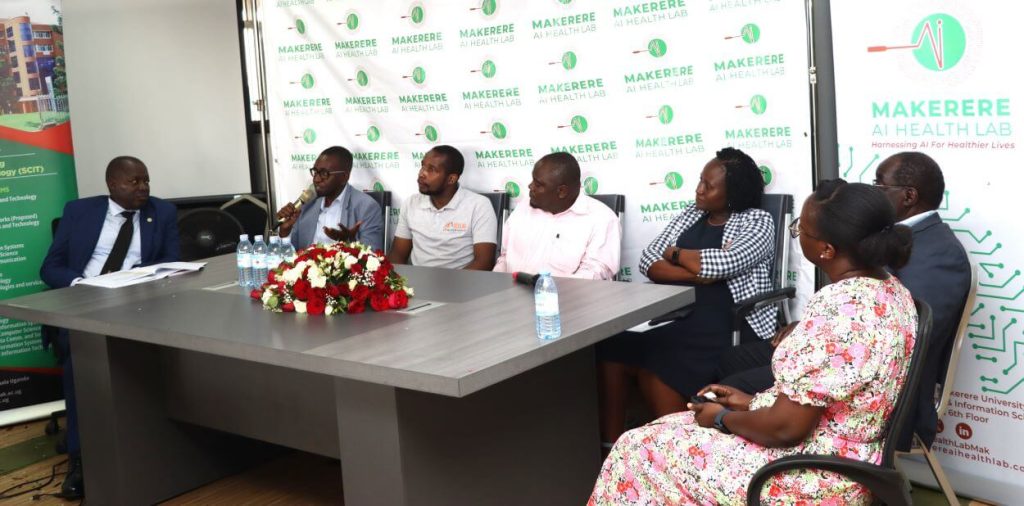
The inauguration was highlighted by panel discussions and plenary sessions on “Leveraging AI for a Healthier Future: Practical Solutions for Africa.” Notable speakers included Prof. Micheal Kawooya, Director of ECUREI; Assoc. Prof. Engineer Bainomugisha, Head of the Department of Computer Science at Makerere University; Mr. Sumba Solomon from the Ocular Project; Ms. Sylivia Nabukenya from the Infectious Disease Institute at Makerere University, Dr. Joyce Nakatumba Nabende of the AI Research Lab; and Lwasa Baker from Rocket Health.
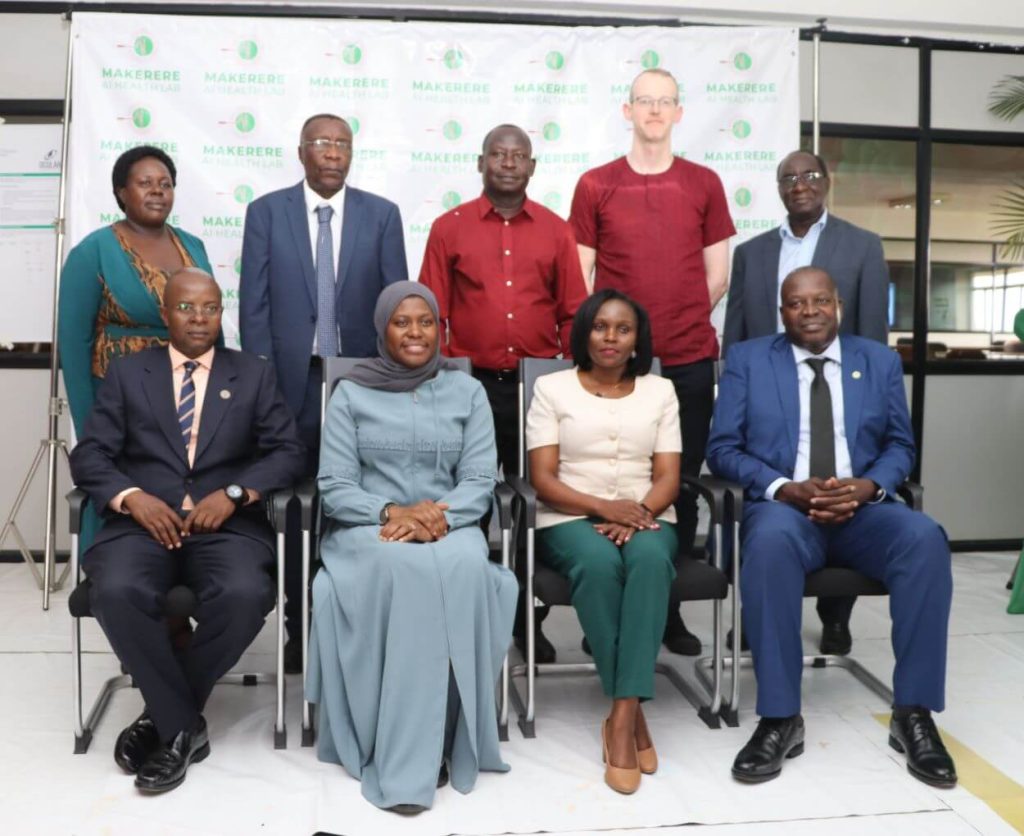
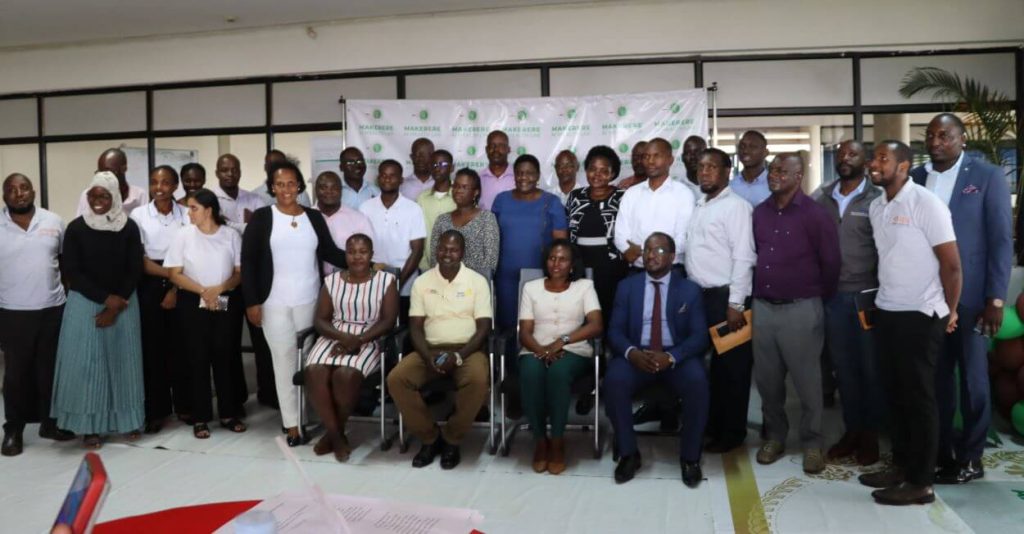
You may like
-


CAES Presents Overall Best Performing Student in the Sciences & a Record 28 PhDs at the 76th Graduation Ceremony
-


Graduation marks the next phase of accountability, graduates told
-


Over 9,200 to graduate at Makerere University’s 76th Graduation
-


76th Graduation Highlights
-


Meet Najjuka Whitney, The Girl Who Missed Law and Found Her Voice
-


Makerere University School of Public Health Graduates First Cohort of Cost-Effectiveness Analysis Short Course
Computing & IS
Makerere Launches Scholarly Guide, Calls for Increased Research, Publication and Innovation in Africa
Published
2 weeks agoon
February 12, 2026By
Jane Anyango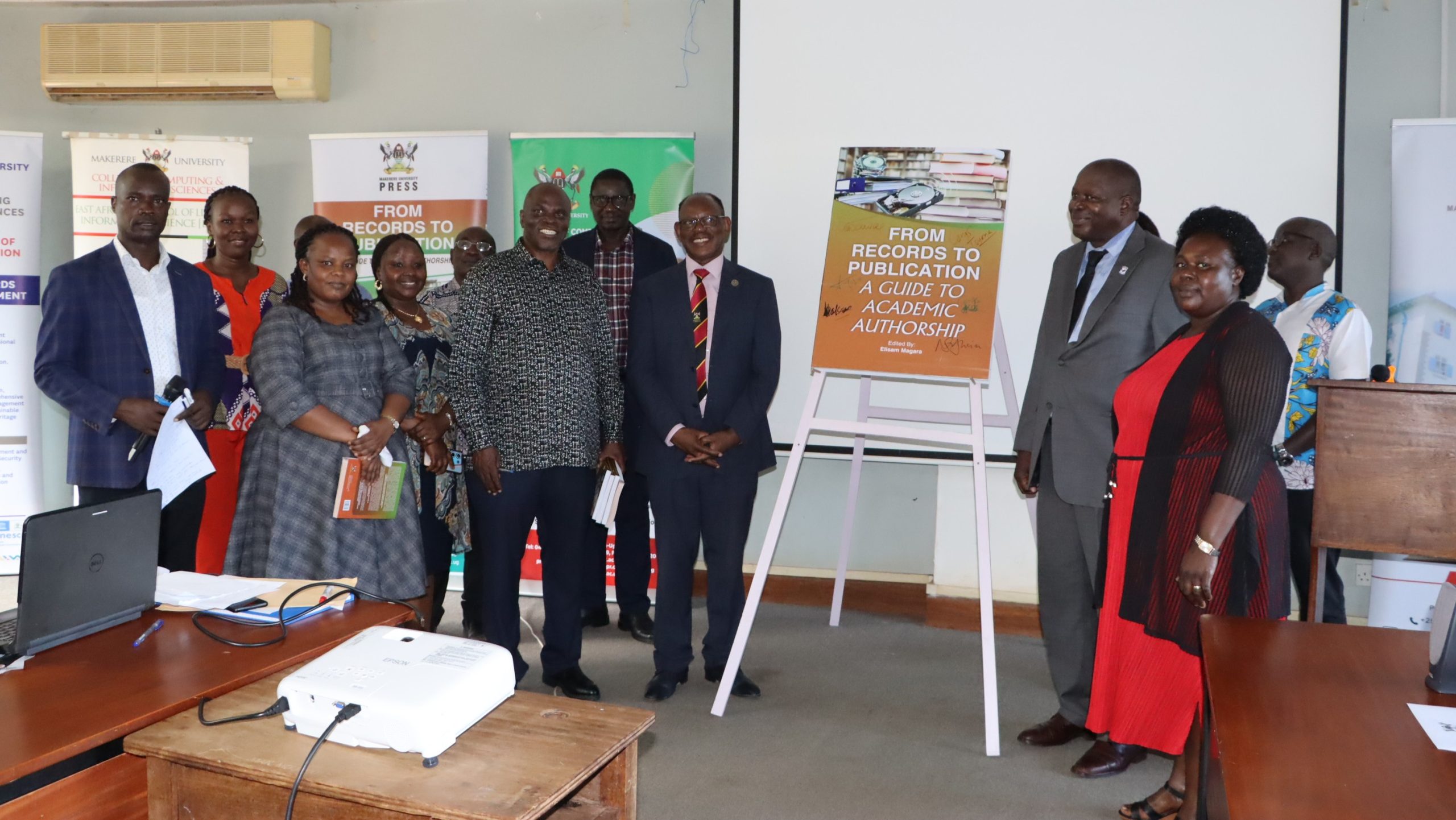
VC Emphasizes Research as Key to Africa’s Global Integration
Makerere University Vice Chancellor, Prof. Barnabas Nawangwe, has urged universities across Africa to invest in research, publication, and innovation as a pathway to greater participation in the global knowledge economy.
Speaking at the launch of From Records to Publication: A Guide to Academic Authorship, edited by Prof. Elisam Magara of the East African School of Library and Information Sciences, Prof. Nawangwe highlighted Africa’s low contribution to global scholarship. “Although Africa accounts for 15 percent of the world’s population, it produces only 3 percent of global research publications,” he said.
“There are historical reasons for this,” the Vice Chancellor continued, referencing centuries of slavery and colonialism. “You cannot brush away 600 years of subjugation. And we Africans have not even written enough about that. If we want to move Africa back into the global community, we must invest in research, publication, and innovation.”
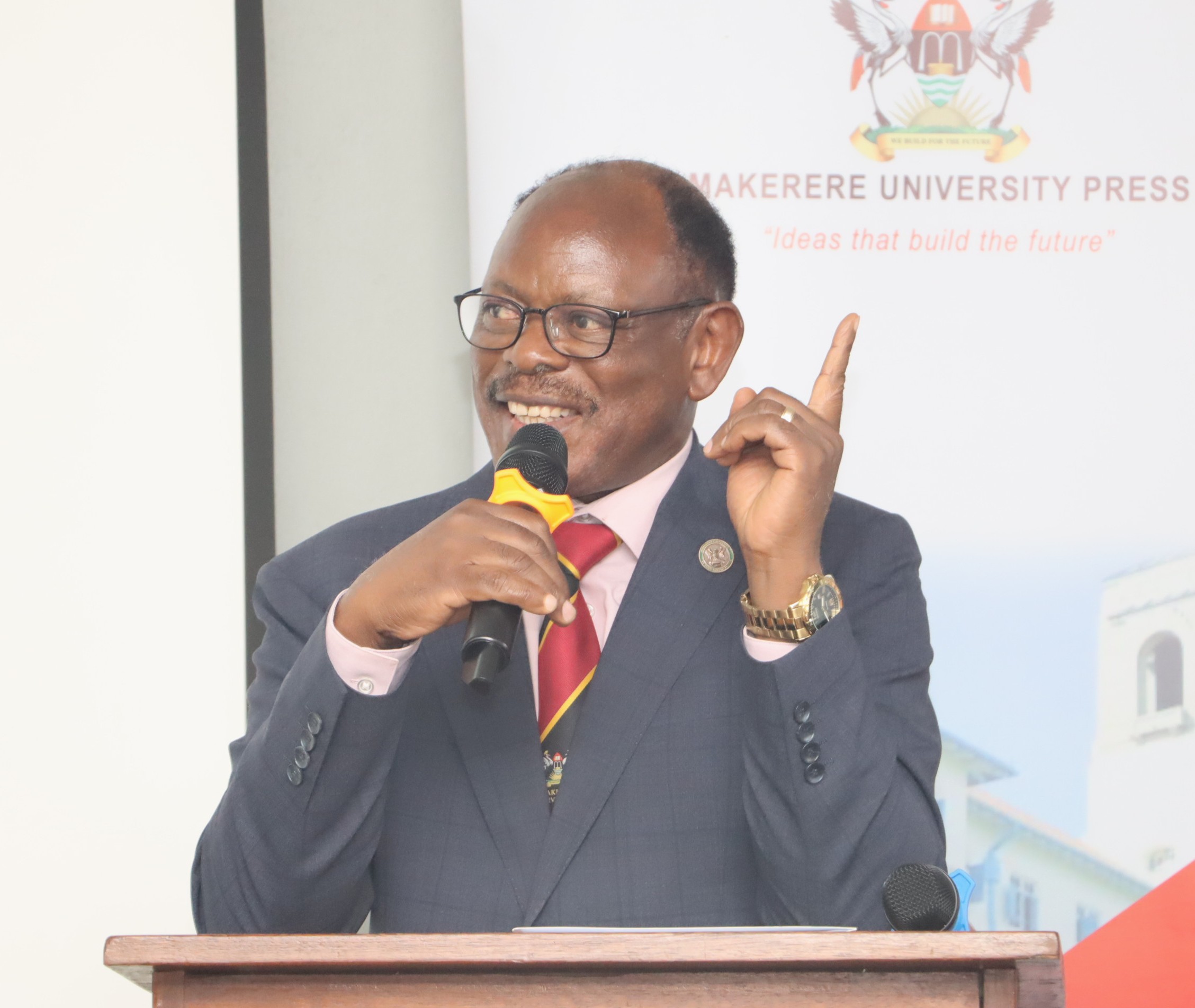
He cited China as an example, noting how the country’s investment in research and education has translated into economic and global influence. “When we say China is the factor of the world, it is not that people just wake up and begin making things. They invest in education, in publication, in research. If we want to transform Africa, we must do the same.”
Prof. Nawangwe highlighted Makerere’s progress, revealing that annual peer-reviewed publications have grown from about 500 a decade ago, to 700, and now exceed 2,000. He acknowledged that the university still trails South African institutions, partly because they operate numerous local journals that absorb significant volumes of research. “We are not fully utilising the brand of Makerere University Press,” he said, pledging support to strengthen the press and scale up journal production.
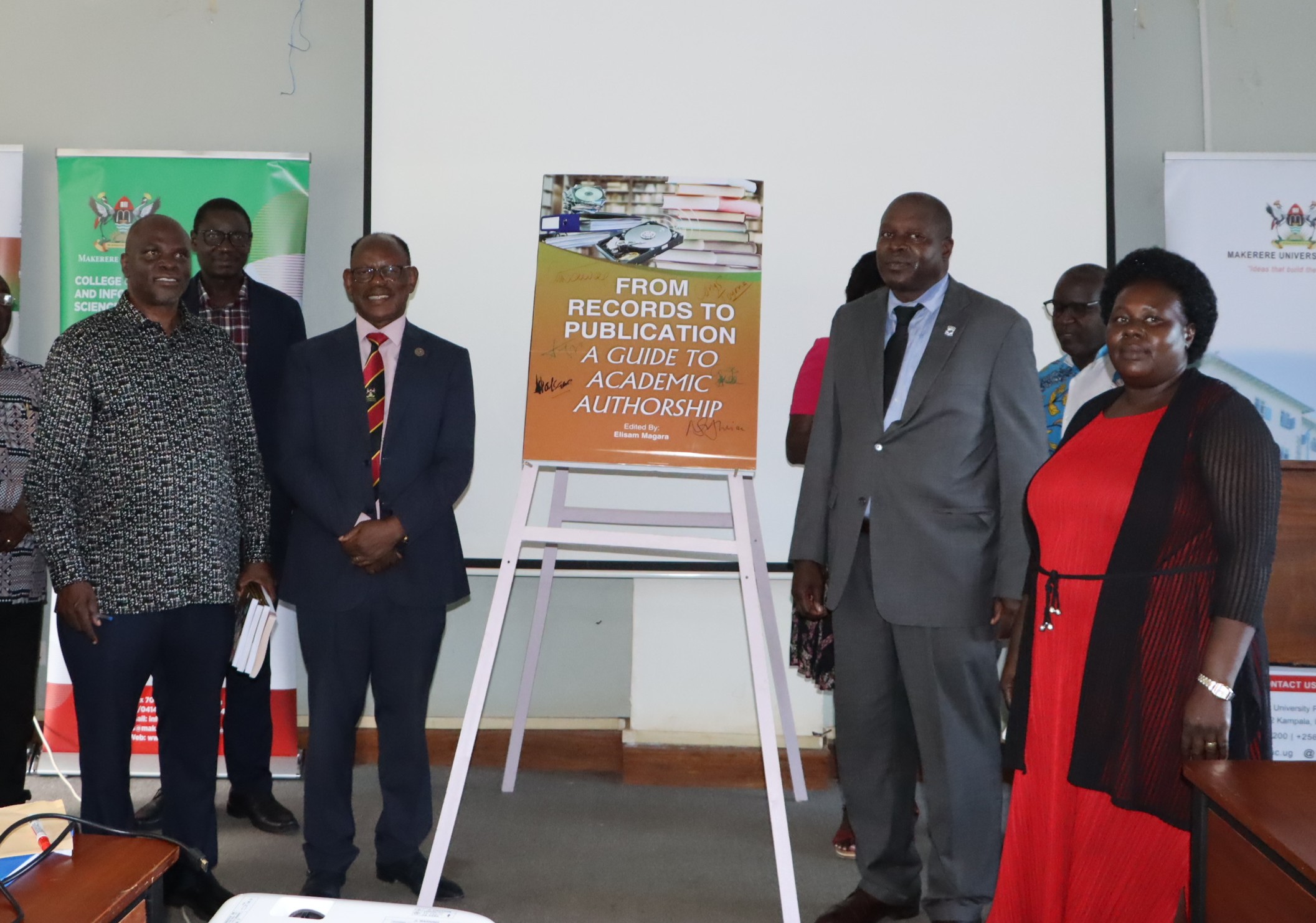
He also reaffirmed the university’s strategy to reduce excessive undergraduate enrolment and expand graduate training to boost research output. “Let us create time for professors to do research and supervise more graduate students,” he said.
Commending Professor Magara and his team for producing the authorship guide, Prof. Nawangwe described the book as an essential handbook for Master’s and PhD students, early-career researchers, and universities across the region striving to become research-led. “This is at the heart of the university. If we invest in research and publication, we secure our future,” he said.
Book Recommended as Mandatory Guide by College Principal
Makerere University’s Principal of the College of Computing and Information Sciences, Prof. Tonny Oyana, called for the newly launched volume to be adopted as a mandatory guide for graduate students and newly appointed lecturers. “This is not a bad book for our first-year PhD students to start with,” he said. “Even those who are hired as junior lecturers still need mentorship. If I were the Vice Chancellor, I would put this book as required reading for every new hire.”
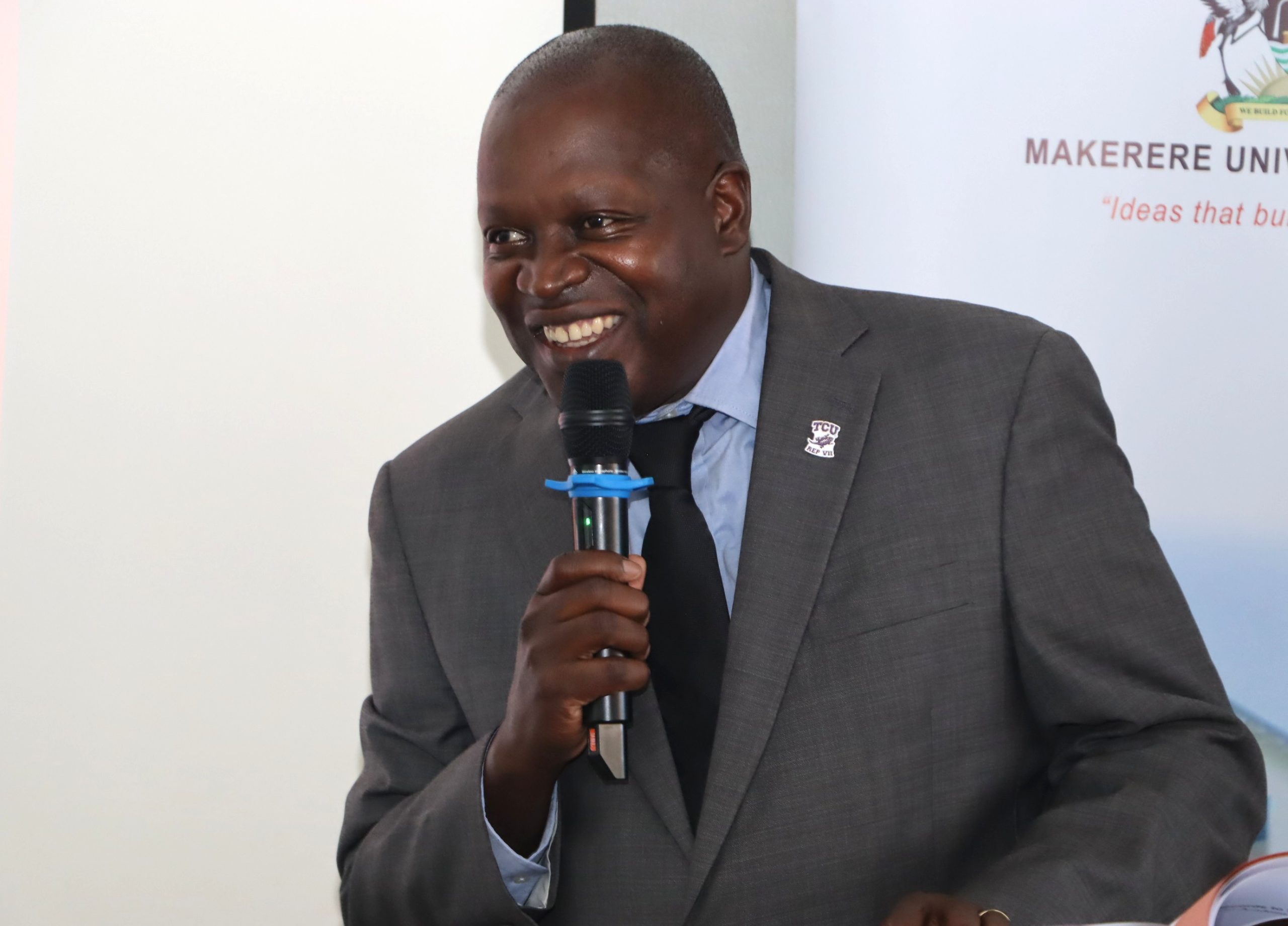
Prof. Oyana reflected on his personal contribution to the book, revealing that administrative responsibilities nearly forced him to withdraw. “Because of the work that I do, I was about to give up,” he admitted. “But Professor Magara was persistent. He came back to me and gave me more time.”
He credited a PhD student, Caroline Ilako, for assisting with library research and literature reviews, saying, “She did a wonderful job. We went back and forth through revisions, but finally we produced the work.”
On the quality of the book, Prof. Oyana said, “When you pick up a book, look at how it is laid out. The quick judgment tells you about the quality. This is well put together. We are beginning to show quality comparable to Western presses.”
He also challenged traditional notions of “publish or perish,” noting, “As scholarship evolves, those who evaluate scholarship must also adjust. Impact, innovation, and tangible products are increasingly valued alongside journal articles.”
Editor Highlights Research-Based Approach
Prof. Elisam Magara, the book’s editor, explained that the guide is designed to support scholars from the moment they conceive a research idea to the point their work is published and read. “I looked at the books we were using and asked myself: which kind of book can truly guide students? We needed a clear guide from the time a scholar thinks of writing up to the time the book is read,” he said.
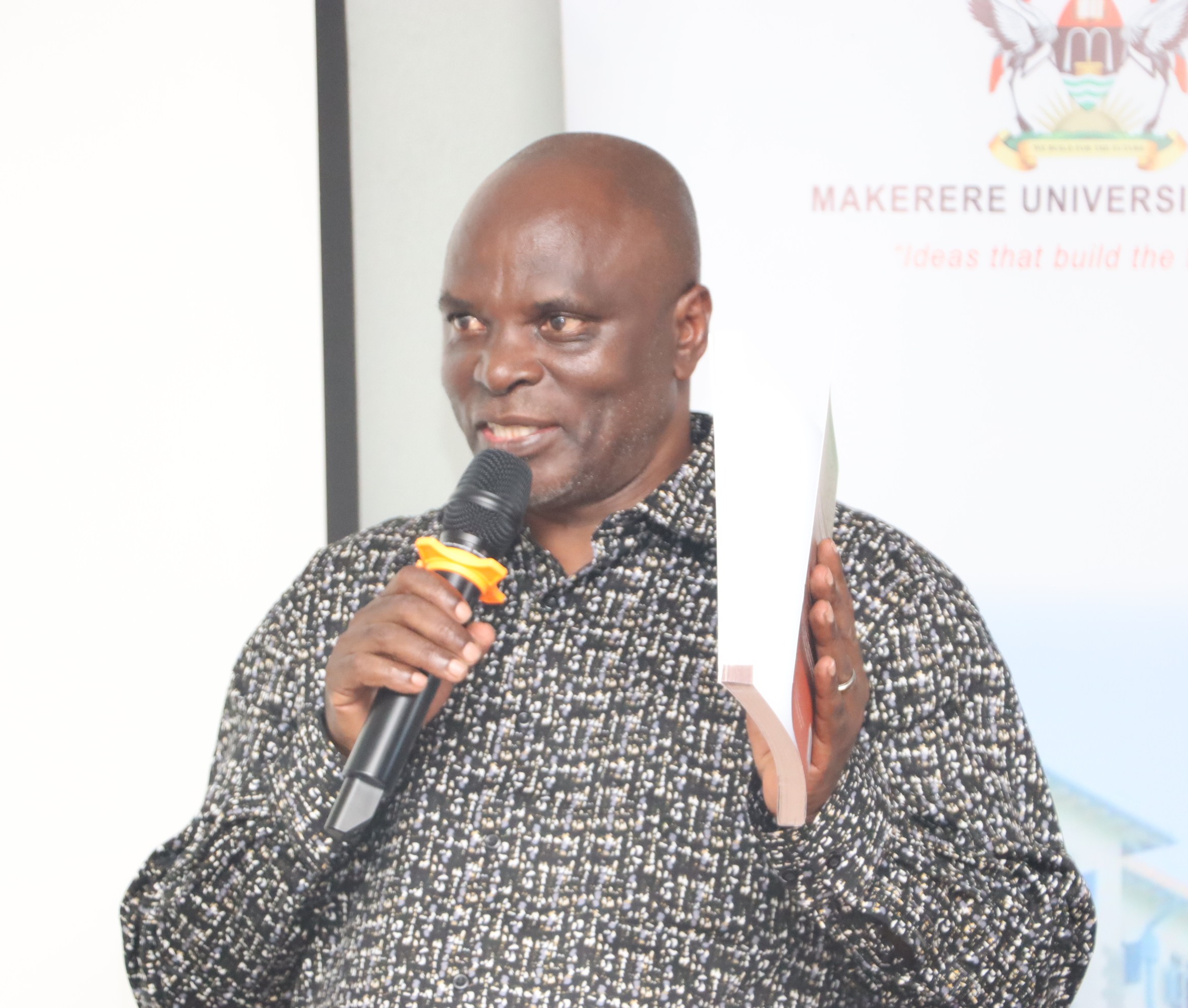
He detailed the rigorous editorial process that began in 2022, including international calls for contributions, peer review of abstracts, writeshops for feedback, and multiple rounds of chapter reviews. “Don’t write and keep,” he advised. “Your book must have impact. It must reach the public and be used.”
Prof. Magara also acknowledged the sabbatical granted by the Vice-Chancellor, which enabled him to balance teaching and editorial responsibilities. “This book is meant not just for Makerere but for scholars across the region and beyond,” he said.
Mak Press Outlines Rigorous Publishing Process
Dr. Isaac Tibasima, representing the Managing Director of Makerere University Press, explained the publication pathway. “Once you bring your manuscript to the press, we take it through evaluation, external peer review, revisions, copy-editing, typesetting, and pre-press review before printing,” he said.
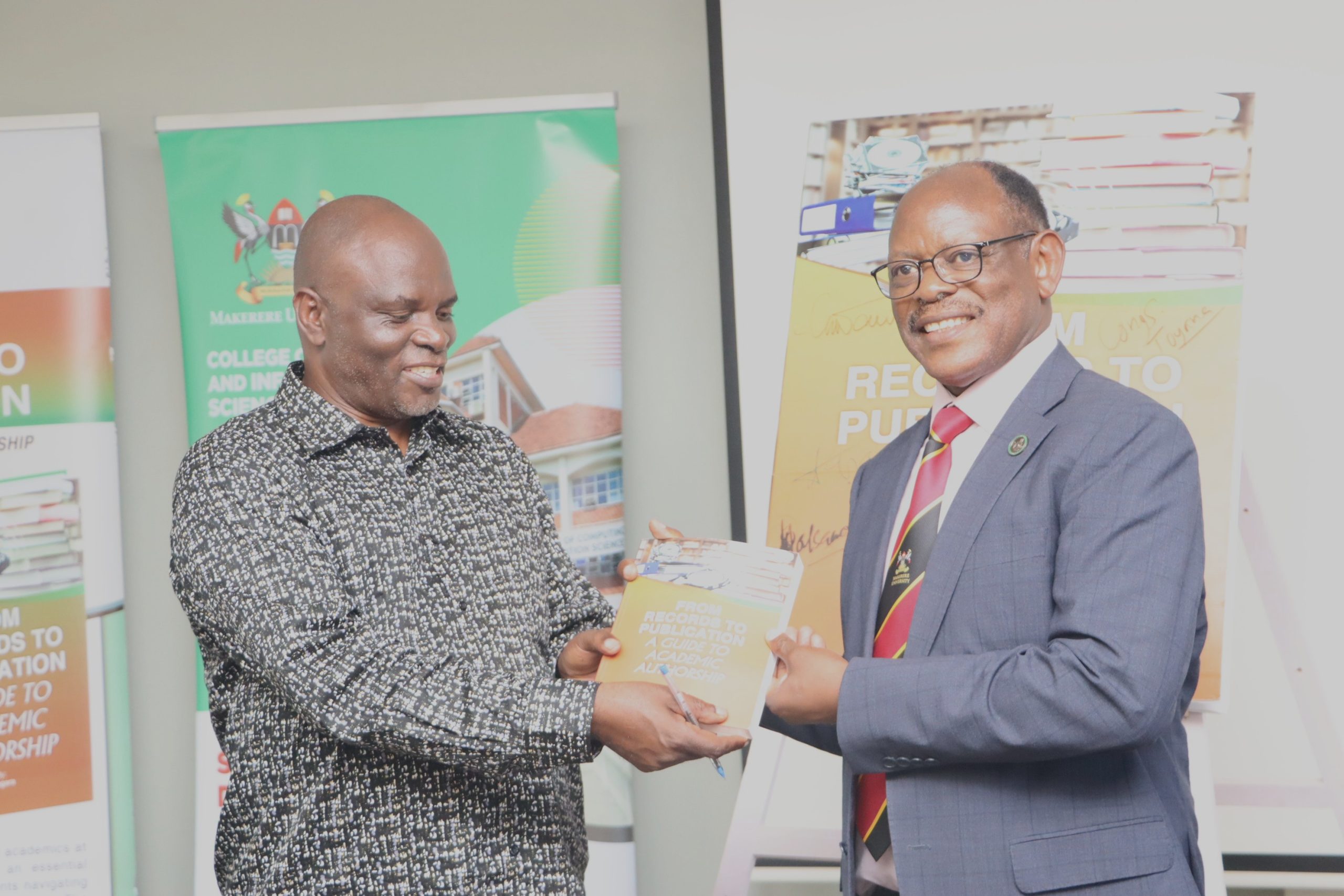
He also highlighted the press’s efforts to strengthen college-based journals. “We will not run the journals, but they will be published under the imprint of Makerere University. If we produce consistent issues, we can then move toward global indexing,” Dr. Tibasima said.
All new journals and articles now carry Digital Object Identifiers (DOIs) to enhance discoverability, while past publications are being retroactively assigned DOIs. “We are not there yet, but we are moving there, and we are intentional about getting there,” he added.
School Leaders Celebrate Scholarship and Mentorship
In welcome remarks, Dr. Sarah Kaddu, Dean of the School, said, “This event is a celebration of scholarship, intellectual discipline, and the journey of knowledge creation. This book speaks directly to one of the most critical challenges facing scholars—transforming research records into publishable work.”
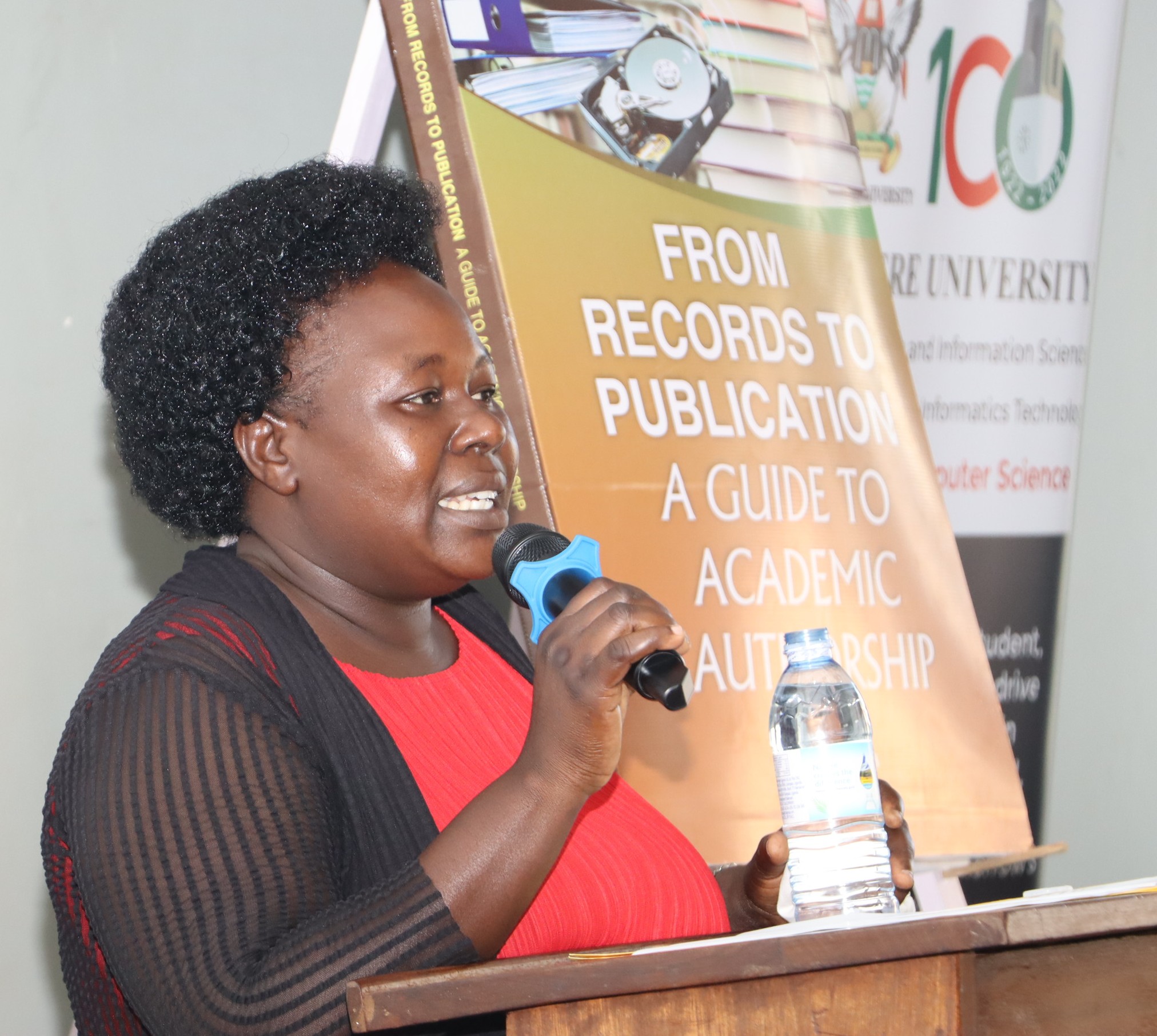
Dr. Sylvia Namujuzi, Head of the Department of Records and Archives Management, added, “This book is timely. It responds to real challenges faced by early-career researchers, postgraduate students, and even seasoned academics—questions of structure, authorship ethics, citation, collaboration, and navigating the publication ecosystem.”
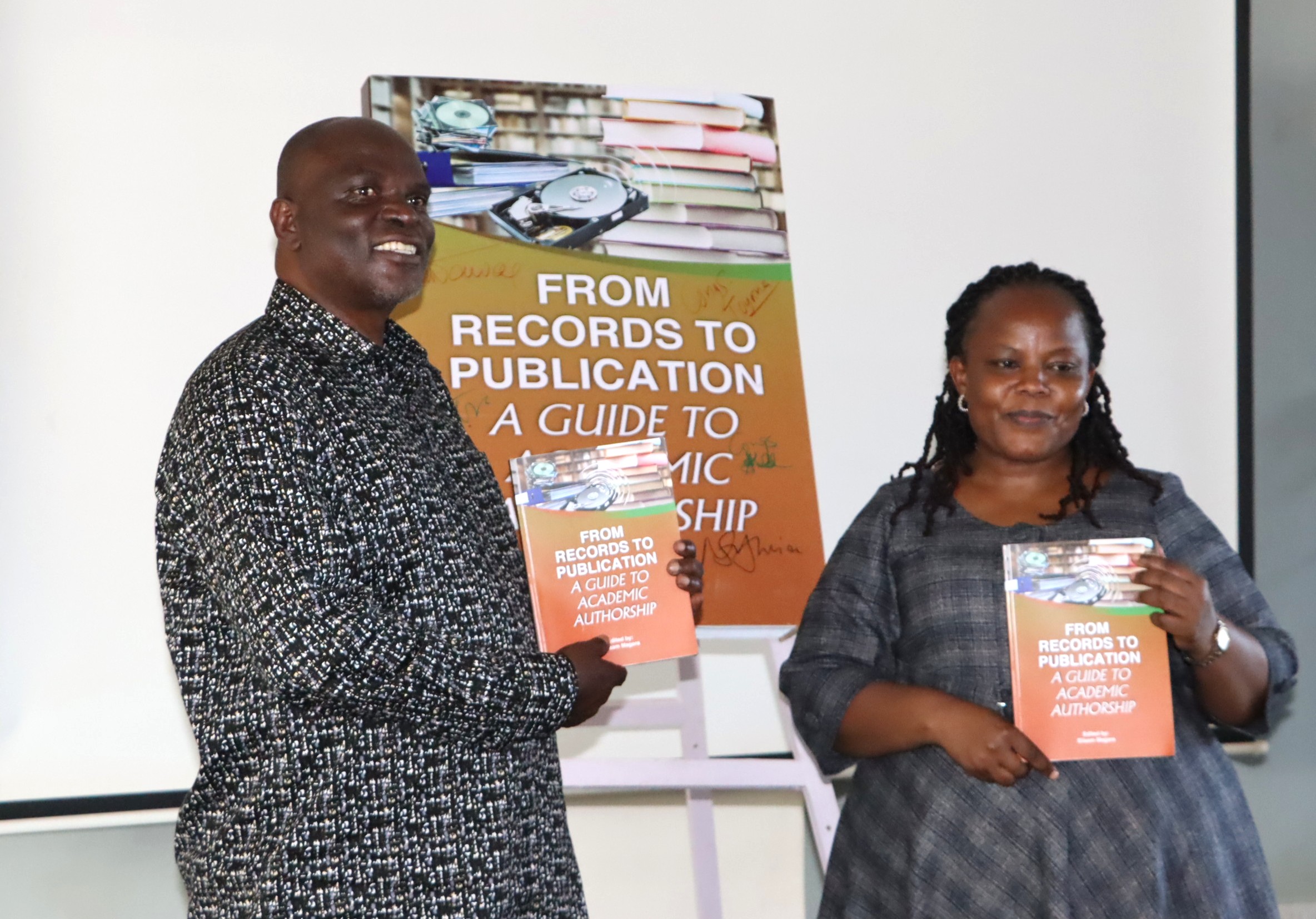
She concluded: “Well-managed records are not endpoints; they are the beginning of inquiry, reflection, and publication. This guide demonstrates that pathway.”
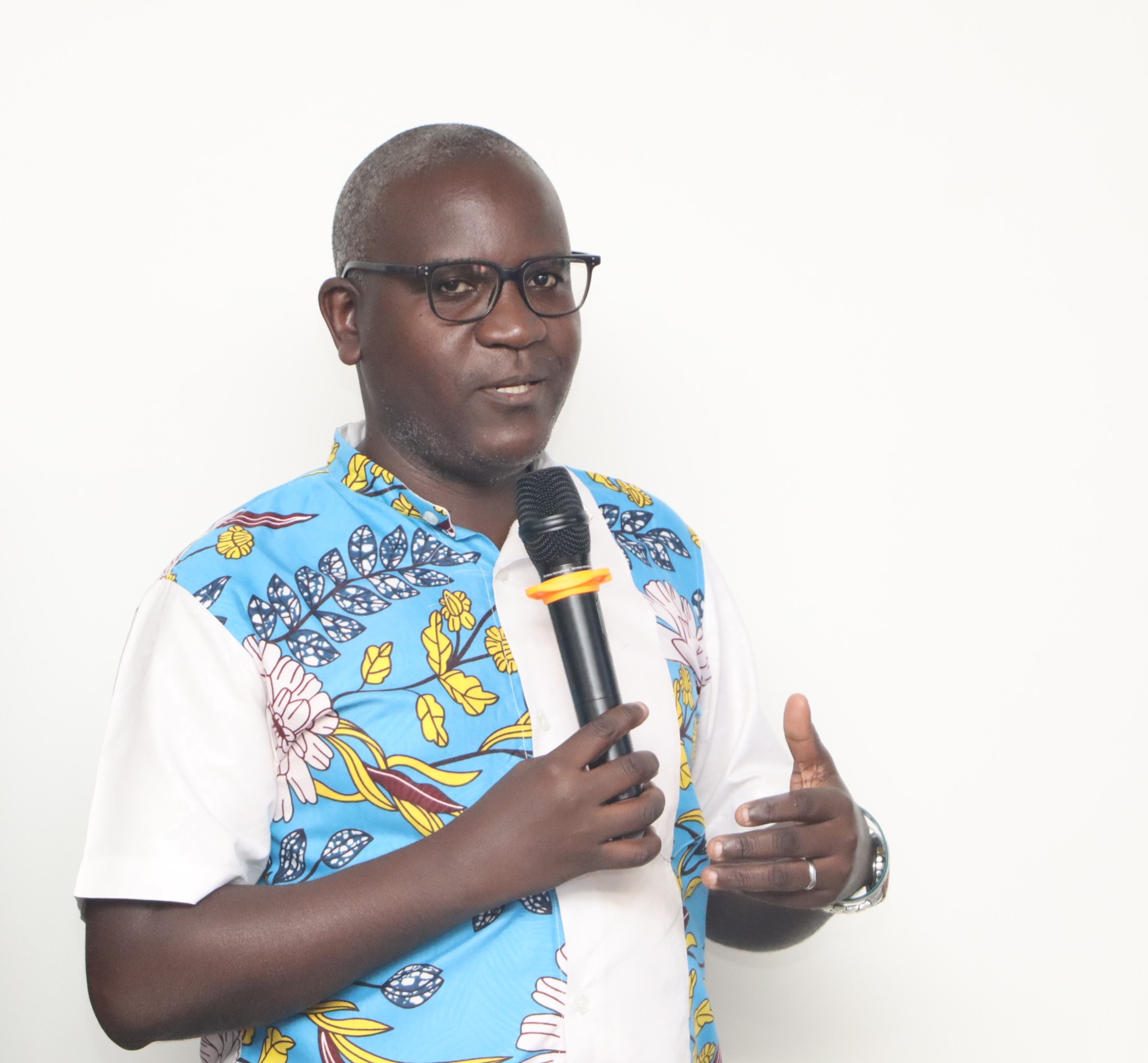
Book Outline
- Introduction: Publication Journey. (Prof. Elisam Magara)
PART I: Foundations of Academic Authorship.
- Conceptual Foundations of Academic Authorship
Elisam Magara and Joseph Kiplangat.
- Archives as a Source of Information for Academic Writing
David Luyombya, Sylivia Namujuzi and Francis Ekwaro
- The place of Oral History in Contemporary Writing
Elisam Magara, James Nkanshah-Obrempong and Nthan Nzyoka Joshua
- Managing Ethical Dilemmas in Academic Writing
Maria Tsvere, Tsitsi Kanonge and Joselin Chigwada
- The Role of Copyright and Neighbouring Rights in Protecting Works of Authors and Publishers in Uganda
Ronald Kakungulu Mayambala
PART II: Managing the Publication Process
- A Manuscript: From Inception to Publication
Sarah Mirembe Kyankya
- Managing Co-Authorship in Academic Writing
Gankhanani Moffat Moyo
- Managing Illustrations and Visual Artworks in Academic Writing
Bob Magara Rutatugirwa
- Tapping into Open Access Platforms for Gainful Authorship
George Muganga
- Managing the Costs in Academic Authorship
Aloysius Rukundo
- The Important Translation in Publication
Monica Mweseli
- Citations and Referencing in Academic Writing
Clement Lutaaya Nabutto, Namujuzi Sylivia, and Daviv Luyombya, Makerere University
- Referencing Management Software In Academic Writing
Odeke Moses Osamai and Constant Okello-Obura
- Compliance with International Bibliographic Control Standards in Academic Authorship
Elisam Magara and Dniel Osinde
PART III: Secondary Services in Academic Writing
- Journal Impact Factor and its Role when Submitting a Publication Article
Tonny J. Oyana and Caroline Ilako
- Managing Mentorship Programmes for Scholarly Writing
Diyoshak Rhoda Danladi and Elisam Magara
Report by
Jane Anyango, Principal Communication Officer CoCIS
Ritah Atukwatse, Journalism and Communication Student (2nd Year)
Fred Kanwagi, Journalism and Communication Student (3rd Year)
Computing & IS
CoCIS CIPSD Short Courses Jan-Mar 2026
Published
1 month agoon
January 19, 2026By
Mak Editor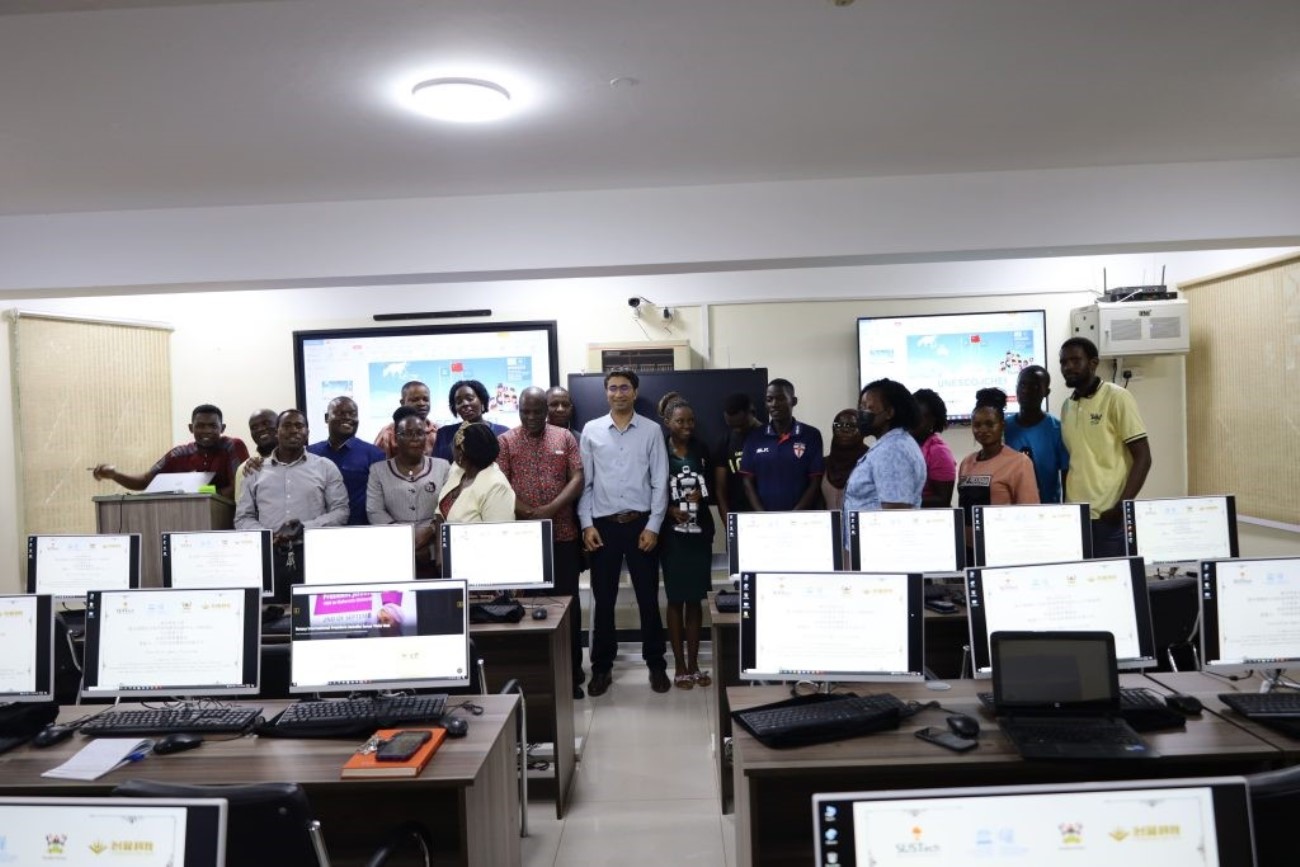
Makerere University College of Computing and Information Sciences (CoCIS) is the main ICT Training, Research and Consultancy Centre in Makerere University. The College has six Academic departments comprising of the Department of Computer Science, Department of Networks, Department of Information Technology, Department of Information Systems, Department of Library and Information Sciences, and the Department of Records and Archives management.
In addition to the mainstream degree programmes, CoCIS has a specialized Center for Innovations and Professional Skills Development (CIPSD) which delivers state-of-art training in ICT e.g. the Cisco Networking Academy for Cisco related courses, the Microsoft IT Academy Program for Microsoft related courses, International Computer Driving License course, Oracle Certified Training center for Oracle, Linux and Unix Training center. CIPSD also offers Machine Learning, Big Data Analytics, Data Science, Artificial Intelligence (AI) and Ethical Hacking as online courses. The College is an authorized Testing center, operating under PearsonVUE and Kryterion. Listed in the table (see download below) are the courses currently offered at the Center with their next start dates, duration, and cost.
- All courses are at affordable fees catering for Students, Vacists, Professionals and
- Anyone who wants to start a career in ICT or polish his/her ICT skills.
Contact Information
E-mail: psd.cis@mak.ac.ug
Tel: +256 782 512 897 +256 752 779964
URL: https://cocis.mak.ac.ug/cipsd/
Computing & IS
Makerere University and SoonPay Sign Landmark MoU to Champion Blockchain Innovation and Financial Inclusion Across Africa
Published
3 months agoon
December 9, 2025
On Saturday 6th December 2025, Makerere University entered into a ground-breaking partnership with the U.S.-based fintech company SoonPay, marking a major breakthrough in Uganda’s push to integrate emerging technologies into research, innovations, higher education and national development.
The Memorandum of Understanding was signed by the Vice Chancellor of Makerere University, Prof. Barnabas Nawangwe and Mr. Frantz Morency, Chief Executive Officer of SoonPay L.L.C, during the Makerere University Financial Innovation Day, a high-energy event that brought together over 800 students, faculty, industry partners, and technology leaders.
The MoU institutionalizes the collaboration of Makerere University through the Makerere University Technology and Innovation Centre and SoonPay LLC. The signing ceremony was witnessed by Dr. Cathy Ikiror Mbidde-Manager of Makerere University Technology and Innovation Centre and Ms. Vuyani Jones-Blockchain Infrastructure Manager.
Organized by the Makerere University Technology and Innovation Centre (MUTIC) in partnership with SoonPay, the event ran under the theme “Innovation and Financial Inclusion for a Secure Future.” It featured keynote speeches, panel discussions, live demonstrations, and the signing of a Memorandum of Understanding (MoU) that will usher in a new era of blockchain training, research, and innovation at Uganda’s premier university.
The event was supported by several partners, including the National Social Security Fund (NSSF), the Uganda Blockchain Association, the National Planning Authority (NPA), Prudential Uganda, and other technology and financial sector stakeholders.
A Strategic Partnership to Transform Africa’s Digital Landscape
The newly signed MoU between Makerere University and SoonPay is expected to unlock a broad set of opportunities for students and academic staff. These include blockchain education and certification, joint research projects, internships and apprenticeships, the development of new financial inclusion tools, and the integration of emerging technologies into existing academic programs.
SoonPay’s entry into Uganda is part of a larger vision to expand blockchain-driven solutions across Africa—a continent its executives say has historically been excluded from global technological revolutions.

Impressed by the overwhelming numbers of students who filled the Yusuf Lule Central Teaching Facility Auditorium to the brim, the Vice Chancellor, said: “Dear students, by choosing to stay on campus, on a Saturday, and after completing your examinations, you have demonstrated your willingness to learn and embrace the blockchain technology as well as emerging technologies in general.”
Stating that blockchain technology is the future for Africa, the Vice Chancellor challenged the students to take charge of Africa’s digital transformation.
“You are the people to emancipate Africa from marginalization,” he declared. “What will liberate our continent is not politics—we have done too much of that. It is education, research, innovation, and technology.”
Prof. Nawangwe delivered a sweeping historical reflection, tracing Africa’s technological setbacks to the destruction of its civilization over several centuries.
“For 400 years, Africans were taken away as slaves. For another 200 years before that, our lands, knowledge systems, and technologies were disrupted,” he said. “This represents around 600 years of destruction and marginalization of African civilization.”
He urged students not to miss the opportunity that modern technologies such as blockchain and artificial intelligence present.
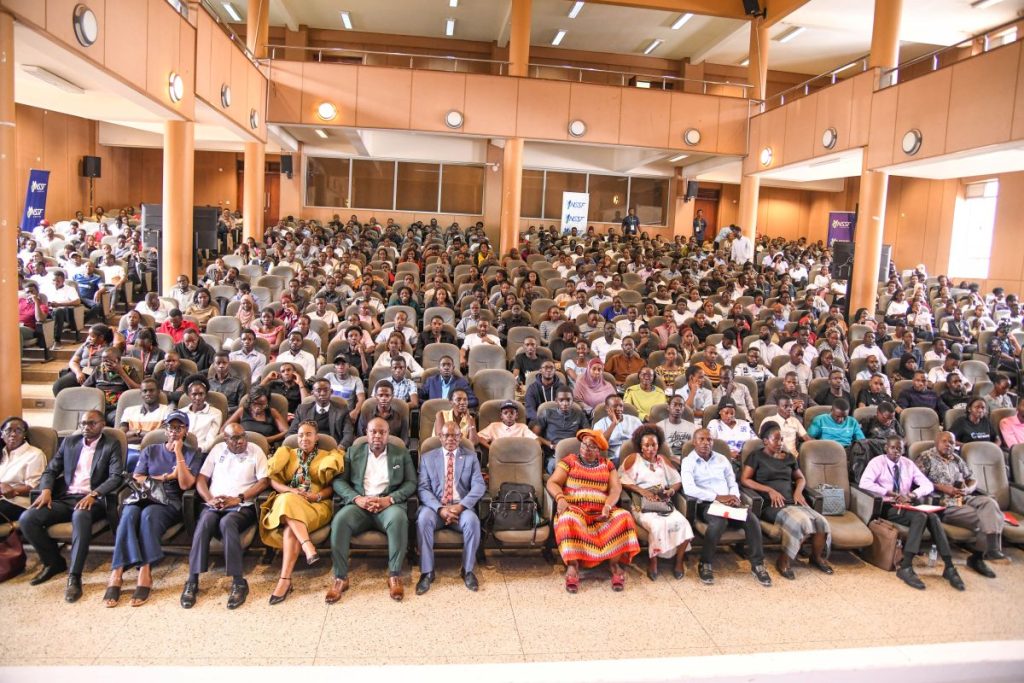
“We are lucky to be living in an era where Africa is free,” the Vice Chancellor said. “My hope is that we do not wait another 600 years to take advantage of this freedom. The most important resource we have is not minerals; it is human resources—you, the youth.”
Prof. Nawangwe reminded students that Makerere’s reputation as the “intellectual capital of Africa” places immense responsibility on their shoulders.
“You are among the very few Ugandans privileged to study at Makerere University. University graduates are not supposed to wait for jobs—you are the ones expected to create them,” he said.
Why Blockchain? Transparency, efficiency, and global competitiveness
The Vice Chancellor highlighted the transformative potential of blockchain technology, especially in improving financial systems—a sector he described as the backbone of any modern economy.
“Without efficient financial systems, nothing else works,” he said. “Blockchain offers transparency, reduces fraud, and minimizes corruption. If applied properly, it could transform how we manage finances, education, and even our natural resources, including the oil that Uganda is about to exploit.”
He added that Makerere’s students are already demonstrating global competitiveness in innovation, winning international competitions and creating products across multiple disciplines.
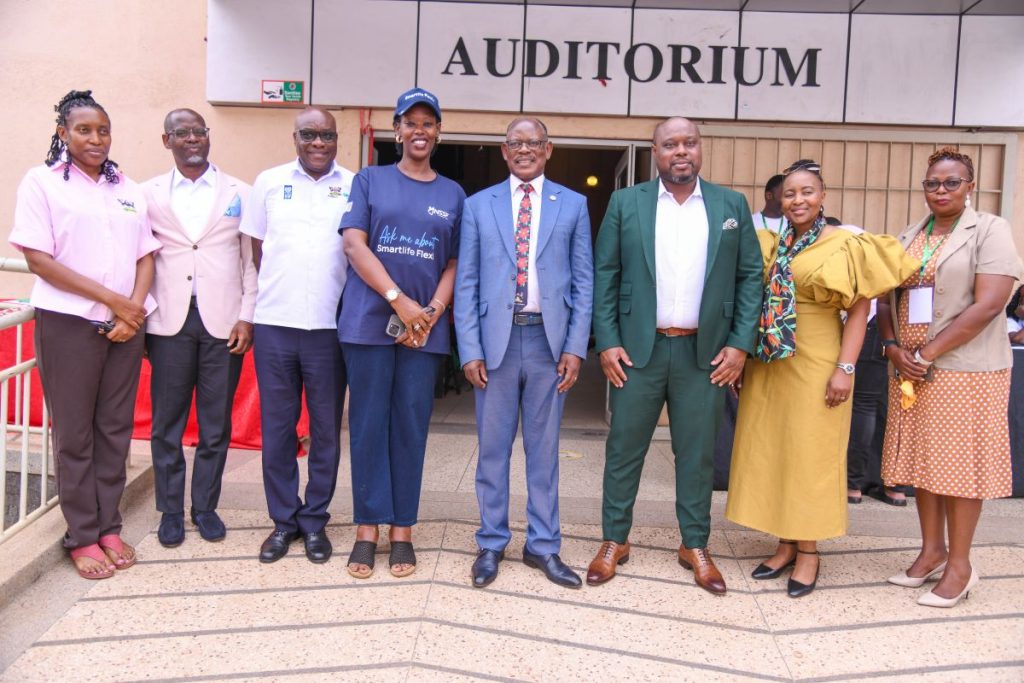
“The brains are here,” he said. “What we need is exposure to opportunities and technologies that will help you turn your ideas into impactful solutions.”
In a passionate keynote address, SoonPay CEO, Mr. Frantz Morency underscored why his company chose Uganda as its launchpad for blockchain adoption in Africa.
“As the Professor said, we have been excluded for more than 400 years,” he stated. “Even though we’re an American company, we know our roots. Look around the SoonPay team—you will see yourselves. We chose Uganda intentionally.”
Mr. Morency pointed to Africa’s dismal participation in the global blockchain economy. “In the U.S., blockchain generates $2.6 billion—61.7 percent of the world’s share. The rest of the world generates $1.6 billion. And Africa, just $14 million, or 0.33 percent,” he said. “That is unacceptable.”
He attributed the gap not to a lack of interest among young Africans, but to a lack of opportunity. “You want to learn—what you lacked was opportunity,” he said. “With the support of Professor Nawangwe, Dr. Cathy Ikiror Mbidde, and Dr. Margaret Nagwovuma, SoonPay wants to bridge that gap in education, technology, and economic opportunity.”
Mr. Morency also shared his personal journey, connecting his Haitian background to the aspirations of African youth.
“Many of you may see me as ‘the guy in the green suit,’ but I come from a small island—Haiti,” he said. “My mother never finished first grade; my father never finished second grade. What they gave me was integrity, work ethic, and the determination to seize opportunities when they came.”
He urged students not to seek opportunities abroad out of desperation, but to build meaningful careers in Africa. “Africa does not need to lose its talent. Why can’t you build here? Why can’t businesses, innovation, and prosperity thrive here?” he said. “Educate yourselves. Build. Create. Grow.”
A milestone for Makerere and Africa
Dr. Cathy Ikiror Mbidde, Head of the Makerere University Technology and Innovation Centre (MUTIC), described the event as a “major milestone” in the institution’s evolution.
“We are here to witness one of the key emerging technologies and to reflect on how universities can embrace such milestones,” she said. “Everyone has a role to play in transforming our lives through research, ideas, and projects.”
She thanked SoonPay for choosing Makerere University, noting that students had been “instrumental” in pushing for blockchain education.
“You have been constantly asking questions, pushing us, and showing deep curiosity about blockchain. Today, we finally have answers,” she told the students.
Beyond the speeches, the event showcased SoonPay’s blockchain infrastructure, student-led innovations, and a roadmap for integrating digital finance tools into university programs. Partners such as NSSF emphasized the importance of preparing young people for a digital future.
With the MoU now in force, Makerere University is positioning itself as a regional hub for blockchain education, research, and innovation. The partnership with SoonPay aims not only to train students but to shape Uganda’s—and Africa’s—next generation of tech leaders.
Trending
-

 Humanities & Social Sciences2 days ago
Humanities & Social Sciences2 days agoMeet Najjuka Whitney, The Girl Who Missed Law and Found Her Voice
-

 Health7 days ago
Health7 days agoUganda has until 2030 to end Open Defecation as Ntaro’s PhD Examines Kabale’s Progress
-

 Agriculture & Environment5 days ago
Agriculture & Environment5 days agoUganda Martyrs Namugongo Students Turn Organic Waste into Soap in an Innovative School Project on Sustainable Waste Management
-

 General7 days ago
General7 days agoMastercard Foundation Scholars embrace and honour their rich cultural diversity
-

 Health2 weeks ago
Health2 weeks agoCall for Applications: Short Course in Molecular Diagnostics March 2026
